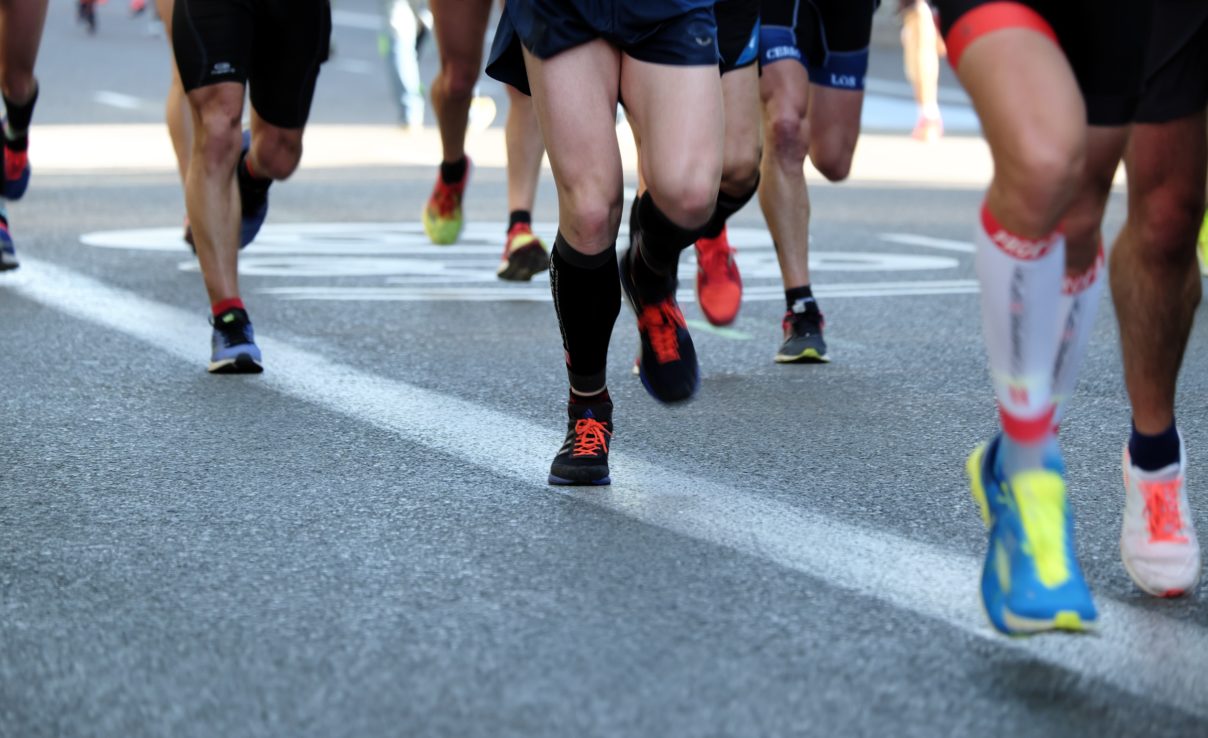Running out of time – can we do more to promote health through physical activity for all?
Dr Emily Oliver, Associate Professor and Amy Wilson, Research Assistant, in our Department of Sport and Exercise Sciences, discuss health inequalities and how the Whole-SMI project aims to support underrepresented groups.

As Durham City’s Run Festival approaches, many residents will be taking to their streets and parks to be active. This is especially joyful following the huge impact that the pandemic, and its associated restrictions, had on people’s physical and mental health. Lockdowns and disruption to our daily routines meant that we were unable to socialise with our families and friends, or, for most, go into our places of work. However, many people took to the streets for their allotted one hour of exercise per day to run, jog or walk, often in household groups. According to Gov.uk, downloads of the ‘Couch to 5k’ app grew by 92% after the first lockdown started in March 2020, with many people citing running as a great way to keep physically active, and look after their mental health in a time of heightened stress and uncertainty. Running or walking is often advocated as accessible to almost everyone, and indeed for some people, it was as simple as lacing up their trainers and heading out of the front door.
However, not everyone was able to engage so easily. Keyworkers continued to work in extremely stressful and challenging conditions. Others faced symptoms of poor mental health exacerbated by uncertainty and fear; many faced lasting physical effects from covid infection, were managing physical conditions or living with disability, or worries around finance and future employment. Now, as always, it is important that our messaging around physical activity appreciates that different people face different challenges to getting involved. Not least, this includes those living with serious mental health conditions.
Severe mental illness and physical health – a worrying inequality
It has been apparent for some time that our approaches to promoting physical activity and wider health support need to change, particularly for individuals with serious mental health conditions. In the UK around 1 in 100 people have a diagnosis of a severe mental illness (SMI), which includes schizophrenia, bipolar and other forms of psychosis. People living with SMI are over three times more likely to experience issues with their physical health, and worryingly, may die on average 15-20 years earlier than someone in the general population. Factors that may contribute to the mortality gap are fairly well understood, but fundamentally inequity in the healthcare, and health promotion, systems plays a huge part in this.
Addressing health inequalities is a complex and sensitive matter, with many different components needed to drive change. However one thing does appear to helpful: when we consider a holistic approach to each individual, and collaborating with the person to work out what is most supportive for them and their situation, people’s engagement increases and they have more trust in their healthcare providers. Most importantly, the result is often an improvement in both their physical and mental health.
So, as Durham’s City Run Festival approaches, we encourage everyone to get involved in exploring the city and being active in their own ways, and take time to reflect on what more we can do to help all, including those facing complex barriers, engage in physical activity more widely.
What are we doing to help?
The Whole-SMI project is currently being run by researchers at Durham University, and aims to support people who have a diagnosis of SMI with their physical health. The project is based on earlier research by colleagues at University College London, who created the ‘Primrose’ intervention targeting cardiovascular disease. Primrose and Whole-SMI have similar target populations, but a key ethos of Whole-SMI is the focus on holistic health and ensuring that it best supports the people of North-East communities. Whole-SMI doesn’t just focus on cardiovascular health or running either; we aim to look at different markers of what good health means to people and many more health-related behaviours. By looking at these factors, we hope to better understand what underrepresented groups in our communities need to live well and be active, get support for their physical and mental health, and develop good relationships with healthcare professionals.
Currently, the Whole-SMI project has recruited a community advisory group, so that people living with mental health difficulties, their family members and carers, or staff members who work with individuals who have SMI, can help shape and guide our research using their experiences. We also have a community interest network for anyone who wants to follow the progress of the project or possibly get involved in the future. If this sounds like you, please contact Dr Emily Oliver ([email protected]) to find out more.
Find out more
- Dr Emily Oliver is an Associate Professor in the Department of Sport and Exercise Sciences and Fellow of the Wolfson Research Institute for Health and Wellbeing. Find out more about Dr Oliver.
- Amy Wilson is a Research Assistant in the Department of Sport and Exercise Sciences. If you would like to find out more about Amy and her work, visit her profile.
- We are ranked in the top 100 in the QS World University Rankings by Subject 2022. We are an outstanding place for excellence in teaching and research, and our students are highly employable. Visit our Department of Sport and Exercise Sciences webpages to discover more.
- If you’d like to share your story or insights into your work, visit our Submit a blog or vlog page to learn more.
